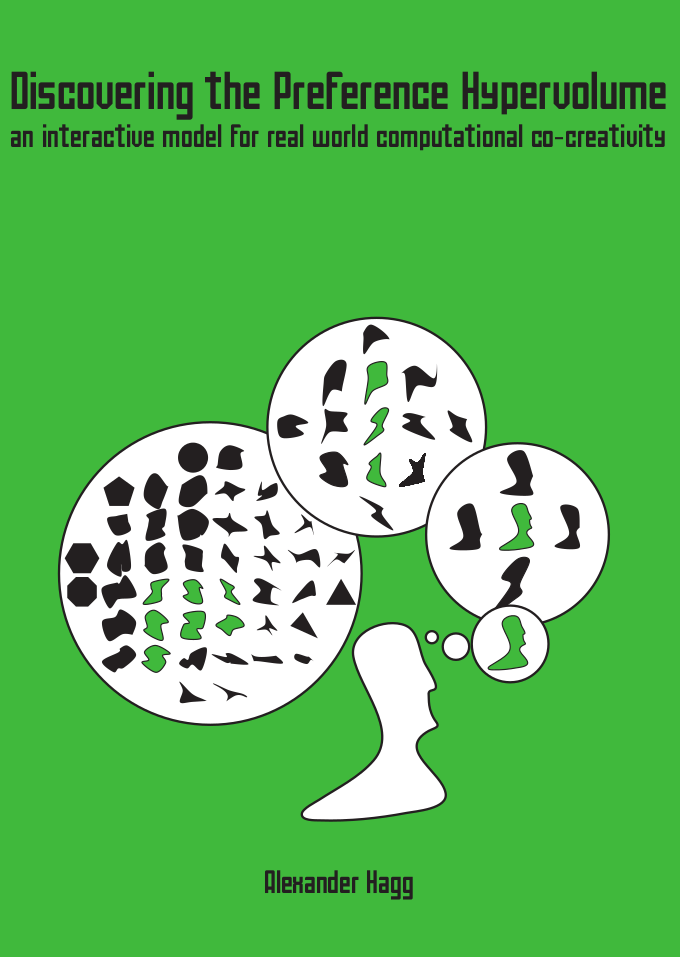About me
I am a nature-inspired researcher with a background in computer science, specifically interested in evolutionary computation, machine learning and creativity in engineering. I believe research in optimization should be broad, encompass uncertainty from the git-go, including the understanding that the iterative process of optimization includes changing requirements and constraints altogether. Optimization and machine learning can and should be used to further our understanding, not automate-away the human endeavour.
 Quality diversity revolves around the idea that we want to find solutions that vary with respect to certain behavioral feature dimensions, just like nature does.
Quality diversity revolves around the idea that we want to find solutions that vary with respect to certain behavioral feature dimensions, just like nature does.
 My doctoral thesis centers on cocreativity between human engineers and evolutionary and machine learning algorithms. I am most experienced with multisolution optimization methods like quality diversity, neuroevolution, and machine learning techniques like variational autoencoders and generative adversarial learning.
My doctoral thesis centers on cocreativity between human engineers and evolutionary and machine learning algorithms. I am most experienced with multisolution optimization methods like quality diversity, neuroevolution, and machine learning techniques like variational autoencoders and generative adversarial learning.
 In the dissertation, I was able to generate large numbers of solutions to expensive optimization problems, most prominently in the fluid dynamics domain.
In the dissertation, I was able to generate large numbers of solutions to expensive optimization problems, most prominently in the fluid dynamics domain.
 With algorithms like HyperPref, which automatically generates solutions, diversifying amongst intrinsic features that are modeled by deep learning algorithms automatically, the user’s selection process is central. Quickly scanning for high-performing solutions and guiding the optimization process by selection, engineers can early on in the design process make smart decisions.
With algorithms like HyperPref, which automatically generates solutions, diversifying amongst intrinsic features that are modeled by deep learning algorithms automatically, the user’s selection process is central. Quickly scanning for high-performing solutions and guiding the optimization process by selection, engineers can early on in the design process make smart decisions.
I take my inspiration from nature, real-world design problems, from computational fluid dynamics, the built environment, computational chemistry, and art.
